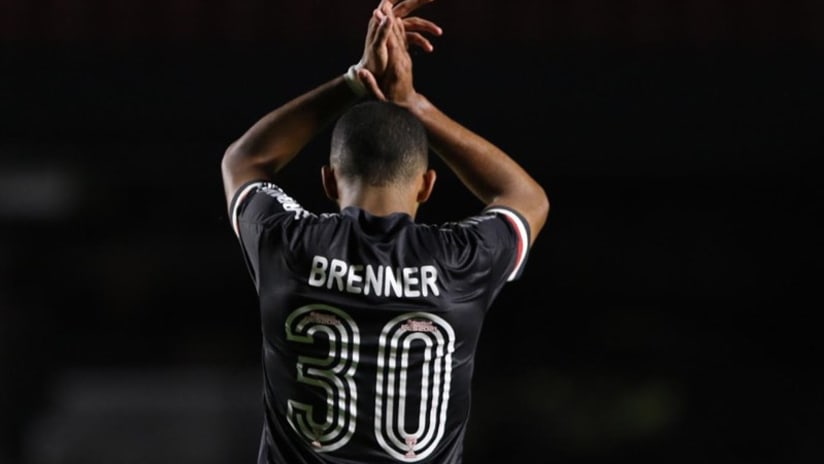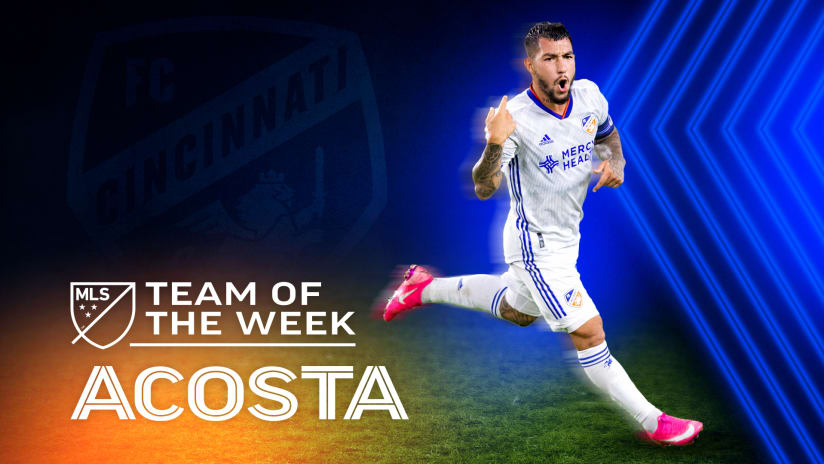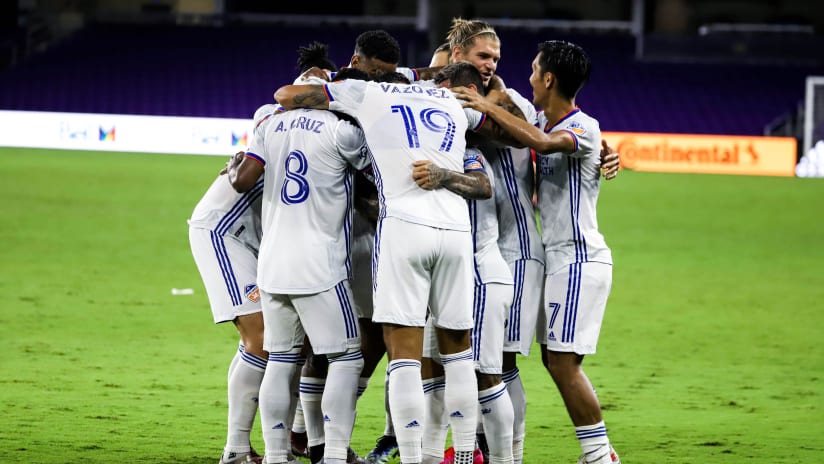FC Cincinnati made international headlines earlier this week when the team announced the signing of Brenner Souza da Silva, a 21-year-old Brazilian forward who recently played for storied São Paulo FC.
Acquiring Brenner, a Young Designated Player, was a coup for the Orange and Blue, who only scored 11 goals through 23 regular season games in 2020. Their new forward scored 21 goals in his last 39 appearances for São Paulo.
His arrival could deliver a welcomed change to FCC’s attacking potential.
“When the offer came, I couldn’t resist,” he said via an intrepreter in an exclusive club interview. “As soon as I heard about the project from a beautiful call with (Director of Scouting and Player Recruitment Hunter Freeman) and saw all the facilities from the club, from that day on, I started searching for videos of the club and the fans. That really surprised me and I had no doubts.”
The move could also be a welcomed change for MLS collectively, too.
While FCC haven’t released the transfer fee publicly, this move is widely considered the third-highest in league history. For a club that hasn’t hosted fans at a home game since 2019 – and is building West End Stadium – this is very much an addition that should help the roster as much as it shows Cincinnati’s ambitions in MLS.
“I’m very happy with the signing of Brenner,” FCC General Manager Gerard Nijkamp said. “It shows that we as a club are going in the right direction and we’re attractive to these kinds of talents … (This) makes us all very happy and is a big compliment for the team.”
Perhaps this acquisition can also be a big compliment for the league.
Clubs have regularly imported quality signings from Central and South America, as have Cincinnati. In 2019, the team added Allan Cruz from Herediano (Costa Rica), while it signed Álvaro Barreal from Vélez Sarsfield (Argentina) in 2020.
But until FCC’s acquisition of Brenner, MLS clubs have been unable to penetrate the Brazilian market and sign young, high-profile players. More specifically, teams haven’t been able to recruit Brazilian players to play in the U.S. before plying their trade in Europe.
For example, last summer, Antony, a young attacking winger at São Paulo with Brenner, had interest from clubs around the world. He chose Ajax Amsterdam. Brenner, in the same position six months later, chose Cincinnati.
“We can be the bridge to go to Europe,” Nijkamp said. “I know in the past (these types of players would directly go from Brazil to there). We took this opportunity as the right moment and the right time to get Brenner now in our club.
“MLS is growing, becomes younger and is becoming more attractive while still investing in young players. This will improve the quality of the league, and (high-profile) players will be available. I think it’s a win-win that a player like Brenner is coming.”
While FCC paid a reported eight-figure fee to sign the forward, who’s played extensively with Brazilian youth national teams, this could be a bargain if Brenner continues his upward progression. That would undoubtably lead to the upward trajectory of the Orange and Blue, too.
“(This move) shows a strong commitment (and courage) from our ownership to invest in young players,” Nijkamp said.
It also shows FC Cincinnati are aggressively trying to build a powerful roster in the short-term, while becoming a potential “bridge” like other teams in the league.
If there’s a single word that exemplifies this acquisition, it’s how Nijkamp described Brenner’s play: Confident. This move should be viewed in the same manner.
It took a lot of faith for Brenner to choose FCC over his other suitors, who played in bigger leagues. But it took an equal amount of confidence from the club to feel their investment in the striker is a good one in the short-term – to drastically improve the roster – and in the long haul.
Maybe this is a move that reignites the momentum that Cincinnati carried into MLS as club that wins matches stylishly with flair. And maybe it’s a move that leads MLS clubs to begin recruiting players from previously-considered unrealistic markets. As Nijkamp said, that would be a win-win.




